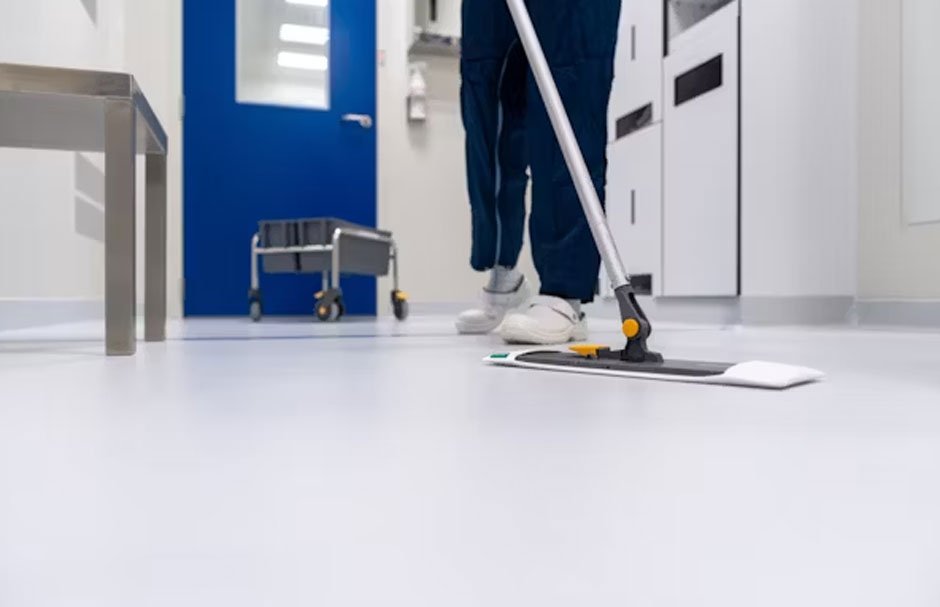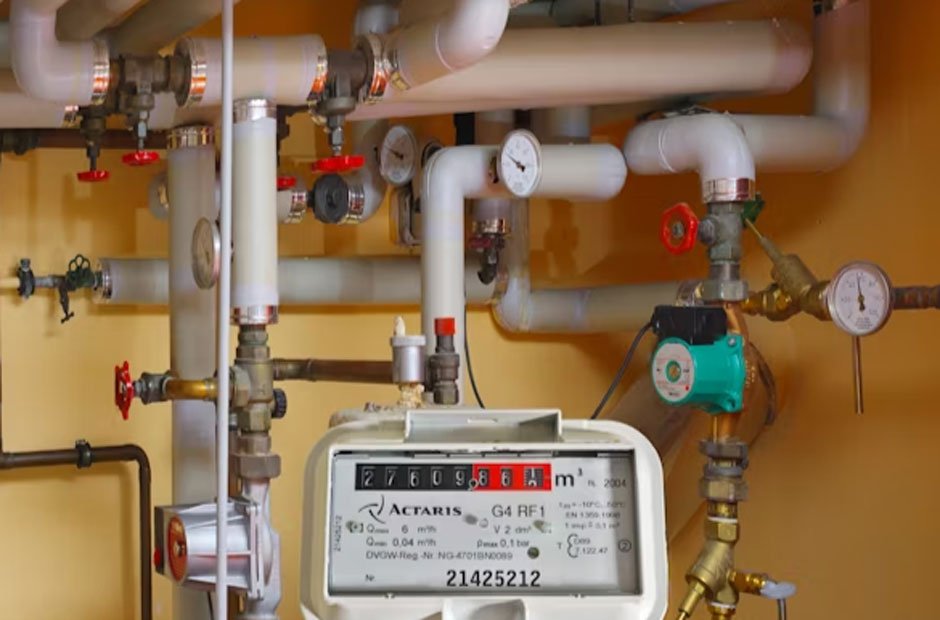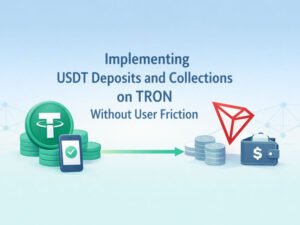Walk into any successful business, and you’ll immediately notice the polished floors, the comfortable temperature, the fresh air, and the overall sense that everything just works. But here’s what you don’t see: the complex web of essential services working behind the scenes to create that seamless experience. From the gas systems powering your kitchen equipment to the cleaning crews maintaining pristine environments, these often-overlooked services are the backbone of every thriving commercial space.
Most business owners focus on the visible aspects of their operations—marketing, sales, customer service—and that makes sense. But neglecting the foundational services that keep your physical space functional and inviting can lead to costly disruptions, safety hazards, and a work environment that gradually deteriorates. The difference between a business that merely survives and one that truly thrives often comes down to how well these essential services are managed.
Let’s explore the critical services that deserve more attention and respect, and why investing in quality support for your business infrastructure isn’t just smart—it’s essential.
The Real Cost of Cutting Corners on Business Infrastructure
Every business owner faces the temptation to reduce overhead costs. It’s a natural instinct, especially when times are tough or you’re trying to maximize profits. But when it comes to the essential services that maintain your physical workspace, penny-pinching can backfire spectacularly.
Consider what happens when you delay maintenance on critical systems. A minor gas leak that could have been caught during routine inspection suddenly becomes an emergency requiring evacuation and expensive emergency repairs. Or think about that “good enough” cleaning service you switched to for budget reasons—the one that’s now causing employee complaints about restroom conditions and leaving your reception area looking perpetually dingy.
The hidden costs add up quickly. Poor maintenance leads to equipment failures, which lead to downtime, lost productivity, and sometimes complete replacement of systems that could have lasted years longer with proper care. A grimy, poorly maintained workspace affects employee morale, creates negative impressions on clients, and can even trigger health issues that lead to increased sick days.
Smart business owners understand that quality infrastructure services aren’t expenses to minimize—they’re investments that pay dividends in reliability, safety, and the overall experience of everyone who walks through your doors.

Why Gas System Safety Should Never Be an Afterthought
Gas systems in commercial properties might not cross your mind until something goes wrong, but they’re often running constantly behind the scenes. Whether it’s supplying energy to your kitchen equipment, heating systems, or specialized machinery, gas infrastructure requires expertise that goes far beyond DIY fixes or calling just anyone with a wrench.
The stakes are genuinely high. Gas-related incidents in commercial buildings can range from inconvenient leaks that shut down operations to catastrophic explosions that destroy property and endanger lives. Even minor issues like inefficient gas flow can cost you hundreds in wasted energy every month without you even realizing it.
This is precisely why having access to a qualified gas fitter becomes non-negotiable for any business using gas systems. These professionals don’t just fix problems—they prevent them through regular inspections, proper installations, and system upgrades that improve both safety and efficiency. A skilled specialist understands the specific requirements of commercial gas systems, the regulatory compliance needed, and how to spot potential issues before they escalate into emergencies.
Think about restaurants, manufacturing facilities, or any business that relies on gas-powered equipment. When a gas system fails during peak operating hours, you’re not just dealing with a repair bill—you’re losing revenue, disappointing customers, and potentially putting people at risk. The right professional can install systems correctly from the start, maintain them properly, and respond quickly when issues arise.
Beyond emergency responses, quality gas system management includes planning for efficiency. Modern systems can significantly reduce energy costs while providing more reliable service. A knowledgeable professional can assess your current setup and recommend improvements that pay for themselves through lower utility bills and reduced downtime.

Creating a Workspace Culture Around Maintenance Excellence
Here’s something most business books won’t tell you: your approach to facilities maintenance reflects your overall business philosophy. Companies that treat building systems as afterthoughts usually have other blind spots too. But businesses that prioritize proactive maintenance tend to excel across the board because they understand the value of prevention over reaction.
Building a culture of maintenance excellence starts with changing your perspective. Instead of viewing facilities management as a boring necessity, recognize it as a strategic advantage. Your competitors might be cutting corners with their building systems and cleaning services. When you invest properly, you create a better experience for everyone—and that competitive edge compounds over time.
Start by establishing relationships with reliable service providers rather than always hunting for the cheapest option. This doesn’t mean overpaying, but it does mean valuing expertise and consistency. When you work with the same quality providers over time, they get to know your property, anticipate issues, and can often prevent problems before they occur.
Create maintenance schedules and actually stick to them. It’s easy to postpone that system check when everything seems fine, but that’s exactly when preventive maintenance matters most. Regular inspections catch small issues before they become expensive emergencies.
Document everything. Keep records of all maintenance, repairs, and inspections. This information becomes invaluable for tracking patterns, planning upgrades, and ensuring nothing falls through the cracks. Plus, detailed maintenance records can increase your property value and provide protection in case of liability issues.
Train your staff to notice and report potential problems. Your employees interact with your space daily and often spot issues before they become critical. Create a simple system for reporting concerns about building systems, cleanliness, or safety hazards, and take these reports seriously.

The Transformation Power of Professional Cleaning Services
Let’s talk about something that directly impacts your business every single day but rarely gets the strategic attention it deserves: cleanliness. Not just “acceptable” cleanliness, but the kind of immaculate, well-maintained environment that makes people feel confident in your business the moment they walk through the door.
The cleaning industry has evolved dramatically beyond someone pushing a mop around at night. Professional cleaning now encompasses specialized techniques, advanced equipment, environmentally responsible products, and systematic approaches that deliver consistent results. This is particularly evident in major business hubs where competition for top talent and clients means every detail matters.
For businesses operating in dynamic commercial environments—particularly in major Asian business centers—the standard for workplace cleanliness has risen considerably. Take Singapore as a prime example: as one of the world’s most sophisticated business hubs, it sets a high bar for professional environments. Companies here understand that commercial cleaning services in Singapore aren’t just about removing dirt; they’re about creating spaces that reflect professionalism, respect for employees and clients, and attention to detail that signals quality in every aspect of the business.
Professional cleaning services bring systematic approaches that individuals can’t replicate. They use industrial-grade equipment, professional-grade cleaning solutions, and trained teams who understand the specific requirements of different surfaces and spaces. They know how to clean healthcare facilities differently from retail spaces, and how to approach tech companies differently from traditional offices.
The impact on employee wellness shouldn’t be underestimated either. Clean workspaces reduce allergens, eliminate bacteria hotspots, improve air quality, and create environments where people feel valued. Research consistently shows that workplace cleanliness directly correlates with employee satisfaction, reduced sick days, and even productivity levels.
First impressions matter enormously in business, and cleanliness is one of the first things people notice—even if they don’t consciously realize it. A client walking into a spotless office subconsciously registers professionalism and attention to detail. Conversely, sticky door handles, grimy corners, or dingy restrooms create negative impressions that can undermine even the best business pitch.

Navigating the Vendor Selection Process Without Regrets
Choosing service providers for your business infrastructure might seem straightforward, but the wrong choice can haunt you for years. Here’s how to select vendors who’ll actually make your life easier rather than create new headaches.
Start with thorough research, but go beyond online reviews. Yes, check ratings and testimonials, but also ask for references from businesses similar to yours. A company that excels at servicing small retail shops might struggle with large corporate facilities, and vice versa. You want providers with proven experience in your specific context.
Look for proper licensing, insurance, and certifications. This isn’t just bureaucratic box-checking—these credentials indicate serious professionals who’ve invested in training and protection for both themselves and their clients. Ask to see proof of insurance certificates and verify that licenses are current and valid for your jurisdiction.
Evaluate their response time and communication style during the selection process itself. If they’re slow to return calls or vague about capabilities before they have your business, imagine how they’ll behave once they’re comfortable. The sales process reveals a lot about how a company operates.
Ask about their training programs for staff. Companies that invest in ongoing employee training deliver better, more consistent results. Find out how they handle quality control and what happens if you’re not satisfied with service. The best vendors have clear protocols for addressing issues quickly.
Discuss emergency response procedures.particularly the value of reliable commercial hvac emergency services for maintaining temperature, air quality, and business continuity. When something goes wrong with critical building systems, you need to know help is available quickly. What are their response times for urgent calls? Do they offer 24/7 emergency services? What does that actually mean in practice?
Get everything in writing. Verbal agreements are recipes for disputes. Detailed contracts protecting both parties create clarity and set expectations. Make sure you understand exactly what’s included, what costs extra, how often services occur, and what the termination process looks like if things don’t work out.
Price is important, but it shouldn’t be your only criterion. The cheapest option often becomes the most expensive when you factor in poor results, unreliability, and the time you’ll waste managing problems. Instead, look for the best value—quality service at fair pricing from providers who’ll actually deliver consistently.
Building Long-Term Partnerships With Service Providers
Once you’ve found good vendors, the relationship doesn’t end there. The best business-vendor relationships evolve into genuine partnerships where both parties benefit from the arrangement and work collaboratively toward shared goals.
Treat your service providers with respect. Remember that the person cleaning your office or maintaining your systems is a professional providing an essential service. Companies that treat vendors as partners rather than servants tend to receive better service, more attentive care, and priority response during emergencies.
Provide clear feedback—both positive and negative. When something’s done well, acknowledge it. When there’s a problem, address it promptly and professionally. Good vendors appreciate clients who communicate clearly about expectations and concerns.
Pay on time. This seems obvious, but late payments strain relationships and can result in reduced service priority. Vendors who know they’ll be paid promptly are more likely to go the extra mile when you need help.
Be reasonable about scope changes. If you need additional services or changes to the schedule, communicate early and be willing to discuss fair compensation for extra work. Constantly adding “just one more thing” without adjusting the agreement creates resentment.
Consider multi-year agreements with escalation clauses. When you find vendors you trust, longer-term contracts can provide pricing stability and guarantee service availability. Including reasonable annual rate adjustments acknowledges rising costs and helps retain quality providers.

The Bottom Line: Infrastructure Investment Pays Dividends
Your business space isn’t just four walls and a roof—it’s the environment where your team creates value, where clients form impressions, and where your company culture takes physical form. Every aspect of how you maintain and care for this space sends messages about your priorities and professionalism.
Investing properly in essential services—from gas system safety to professional cleaning standards—creates a foundation for everything else you’re trying to accomplish. These aren’t luxuries or nice-to-haves; they’re fundamental requirements for any business that wants to thrive rather than merely survive.
The companies that understand this outperform their competitors in subtle but significant ways. Their employees are happier and healthier. Their clients feel more confident in their capabilities. Their systems run more reliably with less downtime. Their spaces feel welcoming and professional rather than neglected and disappointing.
Yes, quality infrastructure services require investment. But compare that cost to the alternative: emergency repairs at premium rates, lost productivity from system failures, employee turnover driven by poor working conditions, and clients who choose competitors with more impressive facilities.
Start looking at your infrastructure services through a strategic lens. Are you getting the quality and reliability your business deserves? Are you working with vendors who understand your needs and deliver consistently? Is your physical space supporting your success or quietly undermining it?
The answers to these questions might be uncomfortable, but they’re worth confronting. Because the businesses that get this right don’t just save money and avoid headaches—they create competitive advantages that compound year after year. They build reputations for quality that extend beyond their products or services to encompass every aspect of the customer and employee experience.
Your infrastructure might be invisible most of the time, but its impact on your business success is anything but. Give it the attention, investment, and respect it deserves, and you’ll reap the rewards for years to come.









